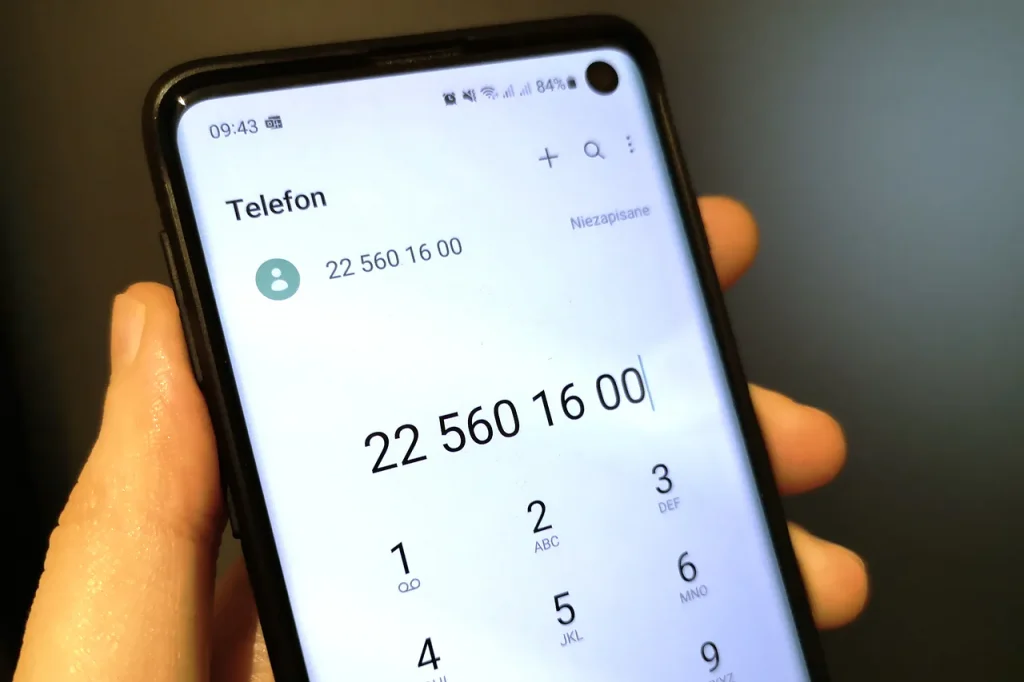Recently, I was talking about phishing, a method that involves phishing our personal data or confidential information. Did you know that phone calls for photovoltaics, health surveys, invitations to device shows and so on are also some form of phishing? We now know very well that such calls are very common, we have learned to ignore them often, and our phones quite often mark such calls as spam. Ignoring, however, does not solve the problem and such persistent calls can still be an unbearable splinter of our everyday life.

Contents
Why are we getting such calls?
It doesn’t take a genius to know that free services aren’t really free at all. A large part of free services and content is free, because there are micropayments, we have to watch advertisements or the company collects our data and sells it to other entities. It is this last reason that makes us plagued by persistent bots that want to collect even more personal data about us. Exactly, bots. We must be aware that on the other side there is not a human, but most often a bot with pre-programmed lines. Its only task is to get specific information from us by any means.
The personal data market is nowadays a thriving business. There is no point in deluding any company that cares about our personal data and does not want it to leak anywhere. The advertisers of the respective entities need complete data. Large companies, having complete information about us, can easily target us with fully personalized advertisements. Marketing has significantly changed its face in recent years. It used to be in the form of a mass market – let’s play an advertisement, wherever possible, someone will definitely be there. Currently, however, ads are targeted at specific people, because in a specific audience there is a greater chance that someone will buy the product.

How big is the persistent calls problem?
Unfortunately, there is no specific data on this subject, but while writing my diploma thesis, I checked the scale of this problem. So I will use the results of my own survey. Unfortunately, there are no specific numbers here, of course, but taking into account that the research group consisted of people of different age, gender and “IT advancement”, we can draw some conclusions.

Let’s take a moment here. Only 72 people took part in the survey I conducted, but it already gives us some perspective on the situation. Most of the respondents (63.9%) receive or have received phishing calls. This result can now be compared with the CERT USA reports, which are also not precise studies, but also provide a great overview of this situation. Considering the number of phishing network incidents, we can conclude that persistent phone calls are a scourge in our country. This is only an estimate, but I will not be far from the truth as I will say that every second network user can receive such calls.
How to prevent form persistent calls?
This is clearly the hardest part of the whole topic. Unfortunately, no way works 100%. Some will stop calling, and others will come in their place. However, there are some universal ways to protect yourself from unwanted calls. Don’t blacklist numbers on your phone. It will not do anything at all, in this case you just have to act at the source.
Our operator may be the first culprit. It is common for us to sign contracts for data processing and transferring them to third parties. We hardly think about it and when we take a subscription, we just sign what is needed. The cure may be a phone call to our operator’s hotline or a visit to one of the showrooms. There, we have the right to withdraw consent to the processing of our personal data by the operator. This means that from that moment on, our operator will not be able to provide (that is, of course, sell) our data to other companies that call us with such nonsense.

You have been to the operator, you have withdrawn your consent to data processing, and you continue to receive such calls. What now? Here it gets a little more difficult and it will take a little more effort to act. Even bots very often present the name of the company they represent in obtaining this data. So the first task is to find out who is calling you at all. Then you search for a company on the Internet, search for contact details and call the headquarters. Once you are in contact, you must request that your data be deleted from the company’s database. The company has no possibility not to accede to your request.
It is not worth the delay!
Procrastination in taking any action is a very bad idea. If your problem is recent, it may be that your data has just been forwarded and that few third parties have it yet. Remember, however, that even if you turn out to be useless for a given company, they will not politely delete your data from the database. To get back some of the money, they will sell your data to other advertisers and other third parties. This means that the longer you wait, the wider your data gets.
This may cause the fight to turn out to be a fight against the windmills. You must withdraw your consents from any company that calls you. In the worst cases, there may be even several dozen of them. Therefore, I strongly encourage you to react soberly to such incidents and as soon as possible to spend one afternoon fighting the intruders.

